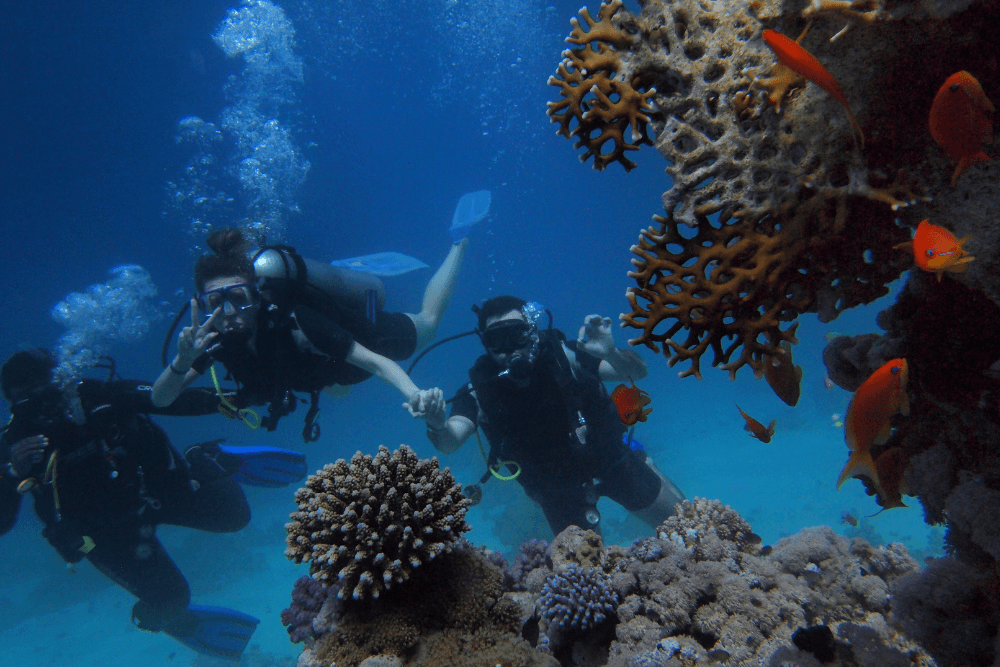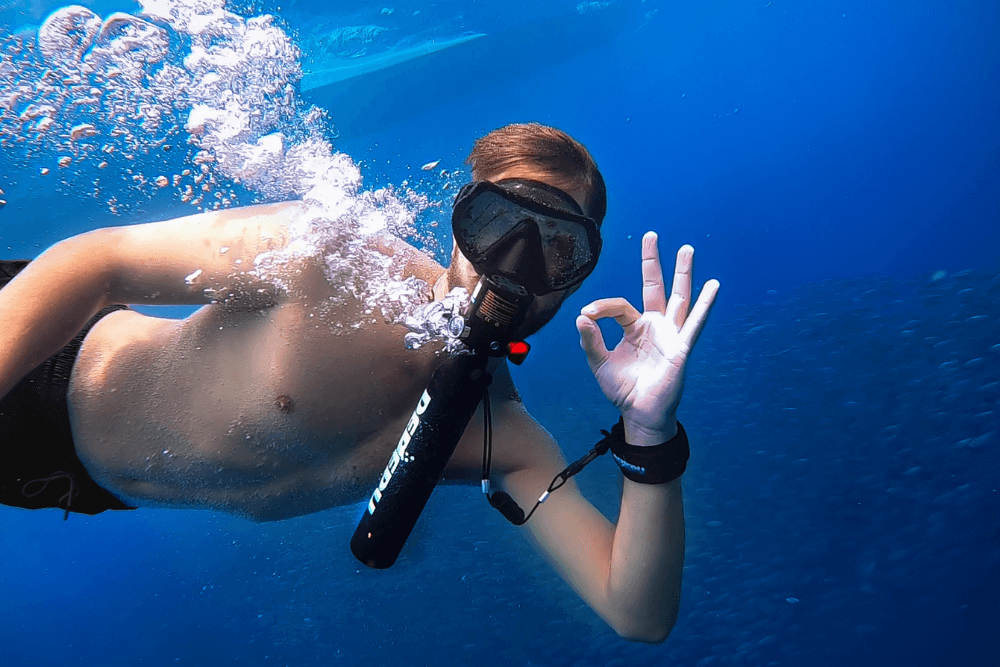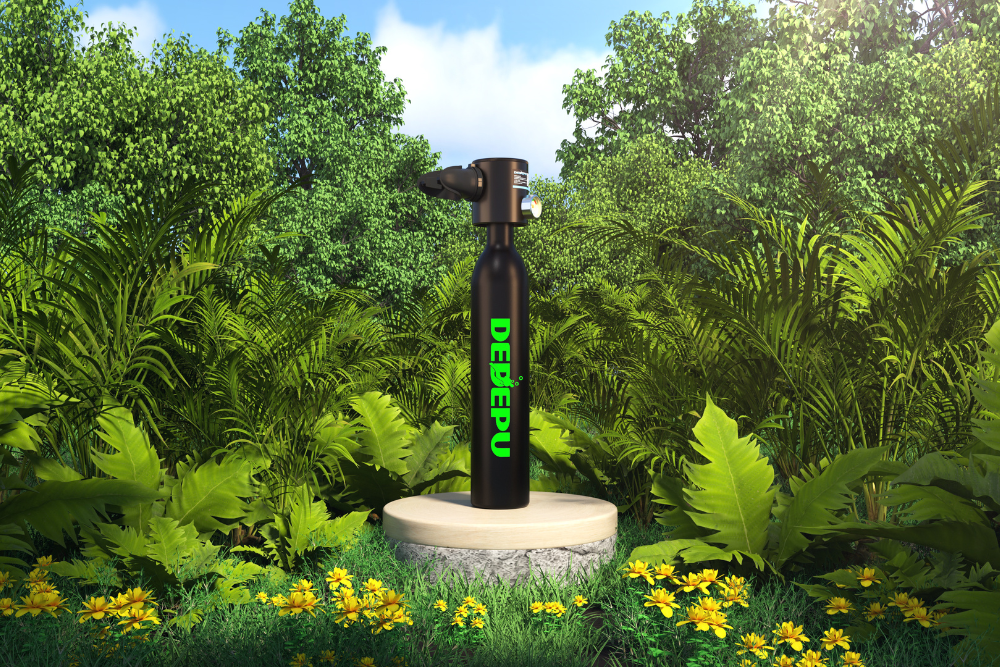Scuba diving is an exciting activity, but certain conditions make it unsafe. For example, 1 in 10 divers experience ear injuries, often due to ignoring congestion or ear infections. Alcohol and some medications can slow reaction times by up to 30%, increasing accident risks. Rough seas with waves over 1 meter high or visibility below 5 meters can make diving hazardous. Additionally, divers who haven’t practiced in over 6 months are 3 times more likely to make critical errors.
If You Have a Cold or Ear Problems
Diving with a cold or ear issues isn’t just uncomfortable—it’s dangerous. Around 35% of diving-related injuries involve ear and sinus problems, often because divers ignore minor congestion. When you descend, water pressure increases by 1 atmosphere every 10 meters, forcing air into your ears and sinuses. If those passages are blocked, the pressure can’t equalize properly, leading to barotrauma (ear squeeze) in 1 out of 5 cases. Severe cases can cause ruptured eardrums, which take 2-6 weeks to heal and may require medical treatment costing 200-1,000. Even mild congestion can reduce equalization efficiency by 40-60%, making it harder to dive safely.
Pressure Imbalance Risks
At 10 meters (33 feet), external pressure doubles, requiring your ears to equalize frequently.
If your Eustachian tubes are swollen (from a cold or allergy), equalization takes 3-5x more effort and often fails.
Failed equalization can cause middle ear barotrauma in 15-25% of affected divers, with symptoms like sharp pain, hearing loss, or dizziness.
Higher Risk of Infection
Water entering a congested sinus or ear can trap bacteria, increasing infection chances by 30-50%.
Saltwater divers are 20% more likely to develop external ear infections ("swimmer’s ear") due to prolonged moisture exposure.
Long-Term Damage
Repeated ear injuries can lead to permanent hearing loss in 5-10% of chronic cases.
Scar tissue from healed eardrum ruptures may reduce future equalization efficiency by up to 25%.
What to Do Instead
Wait at least 48 hours after cold symptoms fade before diving.
Use decongestants (only if approved by a doctor), as some can wear off underwater, causing a "reverse block" during ascent.
If you frequently struggle with equalization, practice techniques like the Toynbee maneuver (swallowing while pinching your nose) to improve efficiency by 15-20%.
Ignoring these risks can turn a fun dive into a $500 ER visit—or worse. Always prioritize safety over FOMO.

After Drinking Alcohol or Taking Medicine
Alcohol slows reaction time by 10-30%, which is dangerous when you need to respond quickly to currents or equipment issues. Studies show that 1 in 8 diving accidents involve impaired judgment from alcohol or medication. At 20 meters (66 feet), nitrogen narcosis—often called "the martini effect"—can feel 2-3x stronger if you’ve been drinking, mimicking the mental fog of being drunk.
Medications also pose risks. 25% of common prescriptions, like antihistamines or painkillers, increase drowsiness, reducing situational awareness by 40-60%. Even over-the-counter drugs like ibuprofen can slightly alter blood flow, raising decompression sickness (DCS) risk by 15% in repetitive dives.
Why Alcohol and Diving Don’t Mix
1.Impaired Judgment and Decision-Making
Alcohol affects cognitive function at 0.02% BAC (less than one drink), reducing problem-solving speed by 15-20%.
Divers with a 0.05% BAC (1-2 drinks) are 50% more likely to make navigation errors or misjudge air consumption.
At 30 meters (100 feet), nitrogen narcosis alone can impair thinking as much as 0.08% BAC—adding alcohol makes it exponentially worse.
2.Slower Reaction Times
A 0.05% BAC increases reaction time by 120-150 milliseconds, which can be deadly in emergencies like regulator failure or entanglement.
In low-visibility conditions (<5 meters), impaired divers take 30% longer to locate their buddy or ascent line.
3.Increased Risk of Decompression Sickness (DCS)
Alcohol dehydrates the body, reducing blood volume by 3-5% per drink. Thicker blood slows nitrogen off-gassing, increasing DCS risk by 20-25%.
A single drink can double micro-bubble formation in the bloodstream after diving, raising the chance of DCS symptoms by 15%.
4.Worsened Nitrogen Narcosis
At 40 meters (130 feet), nitrogen narcosis typically feels like 2-3 drinks—adding actual alcohol can make it feel like 4-6 drinks, severely impairing motor skills.
Impaired divers at depth are 40% more likely to ignore depth limits or safety stops.
5.Thermoregulation Issues
Alcohol dilates blood vessels, increasing heat loss by 20-30% in water below 20°C (68°F).
A mildly drunk diver in 18°C (64°F) water can develop hypothermia 50% faster than a sober diver.
How Medications Affect Diving Performance
Drowsiness and Reduced Alertness
Antihistamines (e.g., Benadryl) slow reaction times by 30-40%, similar to a 0.06% BAC.
Painkillers like codeine can impair depth perception, increasing the risk of misjudging distances by 25%.
Increased DCS Risk
NSAIDs (e.g., ibuprofen) alter platelet function, potentially increasing bubble formation by 10-15%.
Some antibiotics (e.g., ciprofloxacin) may interact with nitrogen, though research is still ongoing.
Blood Pressure and Heart Rate Changes
Decongestants (e.g., pseudoephedrine) raise heart rate by 10-20 BPM, which can be dangerous under increased underwater exertion.
Beta-blockers reduce maximum heart rate by 15-25%, limiting physical performance in strong currents.
Mental Side Effects
Anti-anxiety meds (e.g., Xanax) can worsen nitrogen narcosis, making depth-related confusion 50% more severe.
Antidepressants may delay reaction times by 200-300 milliseconds, a critical lag in emergencies.
What You Should Do Instead
Wait Long Enough After Drinking
The body metabolizes alcohol at 0.015% BAC per hour. For a 0.08% BAC (legal driving limit in many places), you’d need 5-6 hours to sober up—longer for deep diving.
A good rule: 12 hours between drinking and diving, or 24 hours if you had more than 3 drinks.
Check Medications Before Diving
Avoid diving if a drug label warns about drowsiness, dizziness, or dehydration.
Consult a doctor if you’re on long-term meds—some may require 48-hour clearance before diving.
Hydrate Properly
Drink 500ml of water per hour for 3-4 hours before diving to counteract dehydration.
Avoid caffeine and alcohol for 12 hours pre-dive to maximize hydration.
Consider a Safer Alternative
If you’re on strong meds or drank heavily, skip the dive. A single missed trip is better than a $15,000 hyperbaric chamber treatment.
If You Feel Very Tired or Stressed
Studies show that fatigue contributes to 1 in 5 diving incidents, with tired divers making 30-50% more errors in buoyancy control and air management. When you're sleep-deprived (less than 6 hours of sleep), reaction times slow by 20-40%, equivalent to a 0.05% blood alcohol level. Stress compounds the problem: divers with high anxiety levels consume 15-25% more air due to rapid breathing, cutting dive times short.
Physical fatigue also reduces cold tolerance—a tired diver in 18°C (64°F) water loses body heat 40% faster, increasing hypothermia risk. Even mild dehydration (just 2% body weight loss) can impair decision-making as much as skipping a night's sleep. Bottom line? Exhaustion turns minor issues into emergencies.
Cognitive Impacts
Attention span drops by 40% after 18 hours awake
Decision accuracy decreases 25% when stressed
Memory recall slows by 30% in fatigued divers
Physical Consequences
| Condition | Effect on Diver | Risk Increase |
|---|---|---|
| Sleep <6hrs | +50% air consumption | 2x error rate |
| Dehydration | -15% strength | 25% worse thermoregulation |
| High stress | +30% heart rate | 3x panic likelihood |
Performance Benchmarks
Reaction Time
Well-rested: 200ms
Fatigued: 350-500ms (75% slower)
Air Efficiency
Calm diver: 12 breaths/min
Stressed diver: 25+ breaths/min (108% increase)
Thermal Tolerance
Rested: Maintains core temp for 90 mins in 20°C water
Exhausted: Begins hypothermia in 50 mins
Practical Solutions
Pre-Dive Checklist
✔ Sleep tracker data (minimum 6hrs, preferably 7-9)
✔ Hydration test (light yellow urine = optimal)
✔ Stress level (rate 1-10, >5 requires mitigation)
Recovery Protocols
Power nap: 20 mins pre-dive boosts alertness 35%
Hydration: 500ml electrolyte drink 2hrs pre-dive
Breathing exercises: 5 mins of 4-7-8 breathing reduces stress hormones 40%
When to Cancel
Sleep debt >4hrs over past 48hrs
Resting heart rate >15% above normal
Perceived exhaustion >7/10 scale
By the Numbers: Why It Matters
$8,000 average cost of dive-related medical evacuation
72 hours minimum recovery after transatlantic flight
5:1 ratio of near-misses to actual accidents in fatigued divers
Professional Tip: Your dive computer tracks depth and time—but only you can track your fatigue. When in doubt, sit it out.
Remember: The ocean will still be there tomorrow. Make sure you are too.
When the Weather or Water Conditions Are Bad
Diving in bad conditions isn't just unpleasant—it's how 1 in 3 diving emergencies start. Currents moving faster than 0.5 knots (0.9 km/h) can exhaust divers 50% faster, while visibility below 3 meters (10 feet) makes buddy separation 4x more likely. Waves taller than 1 meter (3 feet) increase boat-to-water entry injuries by 25%, and surface winds over 15 knots (28 km/h) make drift diving 40% more dangerous.
Cold water below 15°C (59°F) cuts dive times by 30% due to faster heat loss, and sudden storms can reduce visibility from 10 meters to near-zero in under 5 minutes. Bottom line: If the conditions look questionable, they probably are.
The Real Risks of Diving in Bad Conditions
Currents: The Silent Energy Drain
0.5-1 knot current = Requires 20% more effort to swim
1.5+ knots = Most recreational divers can't swim against it
Rip currents can pull divers 100 meters offshore in 2 minutes
Data Point: Divers caught in currents consume air 50-70% faster, turning a planned 45-minute dive into a 25-minute emergency ascent.
Visibility: When You Can't See Danger
| Visibility Range | Risk Level | Problem Areas |
|---|---|---|
| 10m+ | Safe | All dive types |
| 5-10m | Moderate | Navigation harder |
| 2-5m | High | Buddy separation likely |
| <2m | Extreme | Abort dive |
Example: In <3m visibility, divers take 3x longer to find their way back to the boat or shore.
Surface Conditions: The Boat Ride Matters Too
Waves >1m = 30% higher chance of gear loss during entry/exit
Wind >15 knots = Boats drift 2-3x faster, complicating pickups
Rainfall >5mm/hr = Washes debris into water, cutting visibility 50% in 10 minutes
Cost Factor: A single lost fin or mask costs $100-300 to replace—cheaper than fighting rough seas.
How to Assess Conditions Before Diving
Pre-Dive Weather Checklist
✔ Wave height <0.8m (2.5ft)
✔ Wind speed <12 knots (22 km/h)
✔ Current forecast <0.8 knots (check local tide tables)
✔ Visibility reports >5m (from recent divers)
Water Temperature Guide
28°C+ (82°F): 60+ minute dives easy
22-27°C (72-80°F): 45-60 minute limit
15-21°C (59-70°F): 30-40 minutes max
<15°C (59°F): Dry suit required
Thermal Fact: For every 1°C drop below 20°C, your body loses heat 10% faster.
When to Call the Dive
Currents are moving leaves/sand visibly along the bottom
Surface chop makes the boat rock >15 degrees side-to-side
Visibility is worse than the dive site's average by 50%
Alternatives When Conditions Are Poor
Shallow Shore Dives (<10m)
Less current impact
Easier exits if conditions worsen
Protected Cove Sites
Often have 50% calmer water than open ocean
Reschedule for Better Weather
Most dive ops offer 90% refunds for weather cancellations
Pro Tip: Use apps like Windy or Surfline to check real-time wave/current data before heading out.
By the Numbers: Why This Matters
$2,500 average cost of a dive-related coast guard rescue
60% of "lost diver" incidents happen in currents >1 knot
3/4 of diving fatalities involve poor conditions as a factor
Remember: Bad conditions don't just make diving harder—they make simple mistakes deadly. When in doubt, wait it out.

If You Haven't Dived in a Long Time
After just 6 months out of the water, divers lose 40-60% of their crucial skills. Those who skip refresher courses are 3x more likely to make life-threatening errors like rapid ascents or air mismanagement. Consider this:
85% of "experienced" divers returning after 1+ year fail basic skills tests
Muscle memory for emergency procedures degrades 50% faster than recreational skills
A 2-year hiatus makes your first dive as risky as a beginner's 5th dive ever
Skill Decay Timeline: What You Lose When
Months Since Last Dive | Key Skills Lost
| Timeframe | Critical Losses | Performance Drop |
|---|---|---|
| 0-3 months | Minimal | <5% |
| 4-6 months | Buoyancy control | 25% worse |
| 7-12 months | Emergency procedures | 40% slower recall |
| 1-2 years | Air consumption efficiency | 50% waste increase |
| 2+ years | All skills near beginner level | 70%+ degradation |
Real Example: A diver after 18 months off:
Uses 60% more air than pre-hiatus
Takes 8 seconds longer to clear a flooded mask
Has 1 in 4 chance of botching regulator recovery
The Hidden Costs of Skipping Refreshers
Financial Risks
$150 refresher course vs.
$2,500 emergency ascent medical bills
$500 replacement gear (from damaged equipment)
Physical Dangers
5x higher chance of barotrauma
3x greater risk of decompression sickness
40% more likely to exceed no-deco limits
Pro Tip: Most dive shops offer 25% off refreshers if booked with a dive trip - smarter than gambling with your safety.
Smart Comeback Strategies
Tiered Re-Entry Plan
<6 months off: 30-min pool session + shallow shore dive
6-12 months: Full refresher course (2hrs) + 2 guided dives
1-2 years: Repeat Open Water skills + 3 supervised dives
2+ years: Full recertification recommended
Skill Refresh Priorities
Buoyancy - Most quickly degraded
Regulator recovery - 70% of rusty divers struggle
Air monitoring - #1 cause of emergencies
Emergency ascent - Often forgotten completely
Bonus: Practice "dry runs" at home weekly - just visualizing skills slows decay by 30%.
By the Numbers: Why Refreshers Pay Off
92% reduction in preventable accidents
45% better air efficiency on first dive back
80% of dive operators require refreshers after 1+ year
100% of professional divers retrain annually
Warning: Your logbook doesn't show skill erosion. That "PADI Certified 2010" card won't help when you can't clear your mask at 18 meters.




Laisser un commentaire
Tous les commentaires sont modérés avant d'être publiés.
Ce site est protégé par hCaptcha, et la Politique de confidentialité et les Conditions de service de hCaptcha s’appliquent.